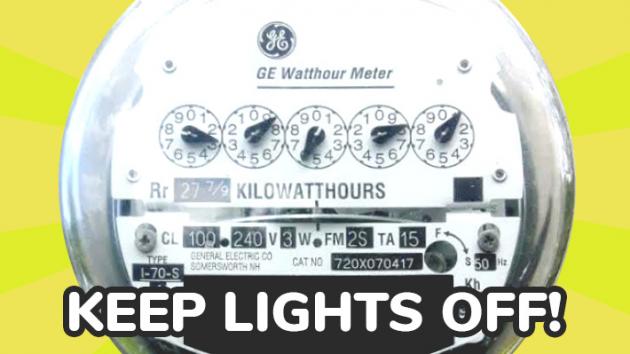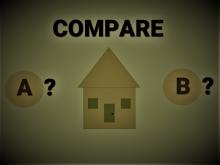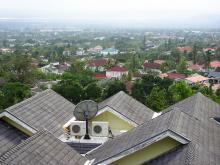Reduce Energy Usage at Home
- By Philmore Thompson
- Mar 7, 2019
-
5m
-
3
- RSS

As a boy I learned from my parents how to reduce energy in our home. It started with them constantly pleading with us, my sisters and brother, to turn off the lights and unplug all appliances when not in use.
Remind everyone to turn off the lights
Their initial strategy obviously didn't work, because signs were then placed on every light switch in the house. I can see it in my mind as I write, a small rectangular piece of brown cardboard with writings in red ink saying "Turn off the lights".
The signs did the trick, and it's easy to do in every home across the world that uses electricity in one form or the other. The one suggestion I'd have, for those of you who are more artistically inclined, is to create some more appealing signs.
Develop a plan to reduce energy usage
What else can you do apart from setting up reminders?
First, find out where you’re wasting energy. Ideally, you'll want to consider the typical sources of energy waste so that you can create a plan on how to reduce the level of energy usage throughout your property.
Start getting your electricity bills under control
Next, develop a plan for controlling your energy usage. Consider the following typical energy wastage areas in a home and simple solutions we've derived for reducing or elimination.
Typical Energy Wastage Areas
Keeping lights and fans on when not in use.
You should aim to turn off lights and fans when not in use.
Using incandescent bulbs.
Instead you can change to energy saver bulbs. Test the ones on the market and use the ones that suit your purpose and budget.
Not programming the air conditioner.
If you can, program your air conditioner to run more efficiently (e.g., by turning it off when you're at work or on holidays, lowering the setting at nights when the temperature is cooler).
Placing air conditioner thermostats in the wrong locations.
Place thermostat on internal walls free from blockages or heat from the sun or any electronic devices, and away from windows, vents and doors.
Clogged air conditioner filters, ducts and vents.
You should service your air conditioners on a regular basis to keep filters, ducts and vents clean and free of debris, so that they can be offer more efficient energy usage.
Keeping refridgerator doors open too long.
Decide what you need in the fridge before opening, then get it and close door quickly.
Putting hot food and/or drinks in the fridge.
Allow food and beverages to cool before refridgerating, to prevent the internal temperature of the fridge from rising too high, and the fridge from working too hard to return the internal temperature to the level needed.
Using washing machines and dryers with small loads.
Wait for full loads before washing, and hang dry your laundry.
Using hot water for washing all clothes.
Use cold water for coloured clothes and hot water for whites.
Setting water heater thermostats too high.
Set the heater thermostat to 120 degrees Fahrenheit (i.e., 49 degrees Celcius).
Keeping electronics and other appliances plugged in when not in use.
Unplug or turn off electronics and appliances when not in use. A lot of people do not realise how much energy is consumed by some of the idle electronical equipment we use in homes.
Keeping laptops and cell phones plugged in when fully charged.
Unplug your mobile devices when fully charged, and don't forget to also unplug your phone and/or laptop but keep the adapter plugged-in.
Falling asleep with the television, radio or other sound device playing.
Program the sleep option on your televisions or other devices so that they turns off after a set time.
Baking at the hottest times during the day, with air conditioners on.
If you have an air conditioner cooling your kitchen, try to bake at cooler times of the day or turn your air conditioner off, so that the a/c won't have to work overtime to keep you cool.
Others
You may have additional energy drainage areas in your home, so assess all your electrical usage points to see if there are any more wastage and research or ask others how to reduce or eliminate them.
Stick to your plan until the actions become routine
Some methods of reducing energy can be implemented right away, but some will need everyday effort until they become the norm. For example, changing bulbs, placing thermostats in an ideal area and setting water heater thermostats only need one-off actions. However, others will require constant reminders, repetition and perseverance in order to become effective.
The plan you create for reducing energy in your home will depend on a few things like the amount, ages and characteristics of the household. It will be different for a family with kids than a single person or a couple without kids.
Execute your plan.
Once you identify your energy wastage points, decide how to reduce or eliminate them, and create a plan for implementation, you will be able to start getting your electricity bills under control.
You will have to become the energy manager in your home by teaching and training all your household members. Remember, stick to your plan until the actions become routine for everyone in the household. But let me warn you, this may require days, weeks or years depending on your responsiveness and that of your household.



